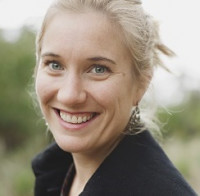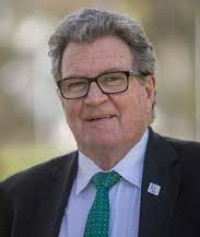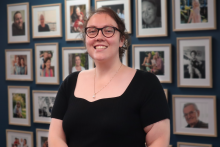






52,000 people in Australia are diagnosed with a rare or complex cancer every single year, and these diagnoses are often grimmer than those of more common cancers. Whilst the past 20 years have seen some significant advances in reducing mortality rates for common cancers compared to incidence, for rare cancer patients, the increase in mortality rates far outstrip the rising incidence rates. This is due to many factors, including difficulty finding expertise and a dearth of available, funded treatments and clinical trials.

Dr Emily Isham
Dr Emily Isham is a GP obstetrician and Rare Cancers Australia's Medical Correspondent. She has particular interest in supporting those with cancer after being an oncology parent, supporting her young son through intensive leukaemia treatment over nearly five years.

Richard Vines
Richard Vines is Chair and Chief Executive Officer of Rare Cancers Australia, Chair of the Australian Genomics Health Alliance’s Community Advisory Board, Co-chair of All.can, Convener and Co-chair of the Australian National Oncology Alliance, and Interim Deputy Chair of the Australian Genomics Cancer Medicines Program.
Richard and his wife Kate established Rare Cancers Australia (RCA), a patient advocacy group, whose mission is to improve the lives and outcomes for rare cancer patients. Since the formation of RCA, the organisation has become recognised as a key participant in the broader cancer community. RCA has published research on the state of rare and less common cancers, has actively advocated for policy reform around research and treatment for rare cancers and provided substantial and innovative support to Australian patients living with rare and less common cancers.

Beth Doggett
Beth Doggett is a qualified oncology social worker and specialist cancer navigator at Rare Cancers Australia supporting people affected by rare, complex and less common cancers, and their families. Beth has worked at Wollongong Hospital, Chris O’Brien Lifehouse, MetroRehab Hospital and Housing NSW. She is/has been a member of the Australia Association of Social Workers (AASW) and Oncology Social Work Australia and New Zealand (OSWANZ). She is passionate about increasing awareness of rare cancers, supporting patients, enabling them to self-advocate, and helping them to access genetic testing and appropriate treatments.
This virtual event will be hosted via Zoom. Zoom is accessible on your computer, tablet or phone via the Zoom app. If you have any issues with this platform on your device, please visit the Zoom support site. Alternatively please contact your IT administrator.
